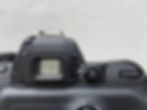Metering Modes (Spot vs Center-weighted vs Matrix)
- Darkroom 8 Studio
- Feb 16, 2021
- 2 min read
Updated: Jun 13, 2021
A blog post by Darkroom8 Team

A well exposed photo is a good photo, which is why metering is such an important aspect when it comes to photography in general. Hobby film photographers might find metering a tricky topic to tackle but understanding how it works will greatly help you in taking control of the photo outcome. For point and shoot film cameras, they usually have a fixed metering system which means the camera will analyze the light and decide it for you. Most of the SLR film cameras on the other hand offer various metering options that cater to your different needs. Today we’ll be sharing some examples of the usual metering modes and how you can use it to your advantage.

Spot Metering
What is it
Spot metering evaluates the light around your focus point and nothing else. If you look through your viewfinder, you will see a single dot at the center. Essentially it measures that single, small zone and calculates the correct exposure measured on this area.
When to use
It’s effective when precise measurement of a specific portion is required. For example - Shooting subjects at a distance or bright subject against a dark background such as the moon in the night sky (measures the brightness of the moon, not the sky around it).
Center-Weighted Metering
What is it
As the name suggests, center-weighted metering focuses on the light that is concentrated in a circular area in the center of the frame. Keep in mind that it reads a large portion of the frame, but not the whole thing.
When to use
When your photographic subjects are located at the center of the frame and not the corners. For example - This is usually the go-to setting for portraits as you’d be metering the exposure for the subject, but not so much for the background.
Matrix Metering
What is it
With matrix metering, it divides the scene up into zones, then analyzes each zone for highlight and shadow. This is the default setting for most photographers and it’s generally the better choice if you aren’t completely sure which to use.
When to use
Suitable for quick operation or ideal for scenes that are evenly lit. Use this if you are new to metering and unsure about which to choose.
In conclusion, no metering mode is better than the other. It completely depends on what you’re metering for and what are the results you’re hoping to achieve. The above examples are suggestions so feel free to try and experiment around with different modes. With enough light and correct exposure, these are the secret ingredients to a well exposed photo.